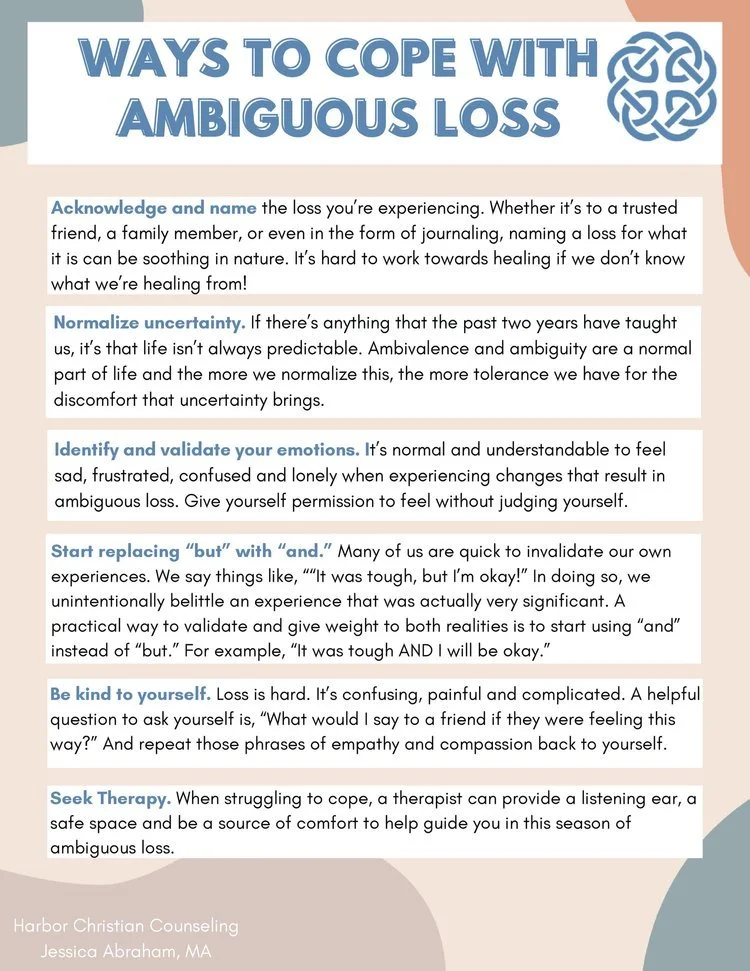Written by Jessica Abraham, LMHC (Senior Clinician)
Looking back over all that has happened in the world and in our lives over the past few years, the experience of loss is something that has impacted most of our lives in one way or another. As we re-enter a somewhat post-pandemic world, we are having to learn how to cope with these various losses. Of course, there are the more obvious losses such as the death of a loved one, major illness and physical impairment, job loss and financial insecurity. But many of us are also grappling with numerous smaller ambiguous losses that have built up over time. Missed graduations. Postponed weddings. Kids moving off to college. Break ups. Losing touch with friends. Divorce. Loss of community. Caring for aging parents. Being ‘ghosted.’ These are all examples of ambiguous loss.
The term “ambiguous loss” was first coined by Dr. Pauline Boss as way to describe the unresolved loss of a loved one when their psychological or physical status is uncertain. Since then, the term ambiguous loss has been expanded to a much larger scope and is used as a framework for understanding numerous global, communal and personal losses (Boss, 2000).
Ambiguity can be hard for us to manage because it often results in feelings of confusion and uncertainty. If given the option, we would prefer to have a sense of closure. But what if closure is not the most beneficial goal to set for ourselves when experiencing ambiguous loss?
By definition, closure means to close something with finality. In many instances, closure is not only necessary; it can be vital! But when it comes to relationships, seeking closure may not be the best answer (Boss, 2022). I often find clients telling me that they just want to “get over” their loss and stop experiencing “negative” emotions, to which I typically respond with the question, “Well, what makes an emotion negative?” Here’s the thing: there is a false notion that emotions fall into categories of “negative” and “positive.” Emotions are signals. They can vary in intensity, which can make them challenging to sit with, but in actuality they are signals pointing us to something.
Experiencing grief and sadness over the loss of a person or community tells us that they were important to us, that the bond meant something to us. Seeking closure suggests that we can end the bond we once had with a sense of finality. In reality, that bond continues on even if that person is no longer in our lives. As such, coping is not about closing the door, but rather learning to live with that loss.
If you’re experiencing ambiguous loss, below are some practical steps on how to cope. I don’t know what loss you are grappling with today, but a loss is a loss and it deserves to be grieved.


